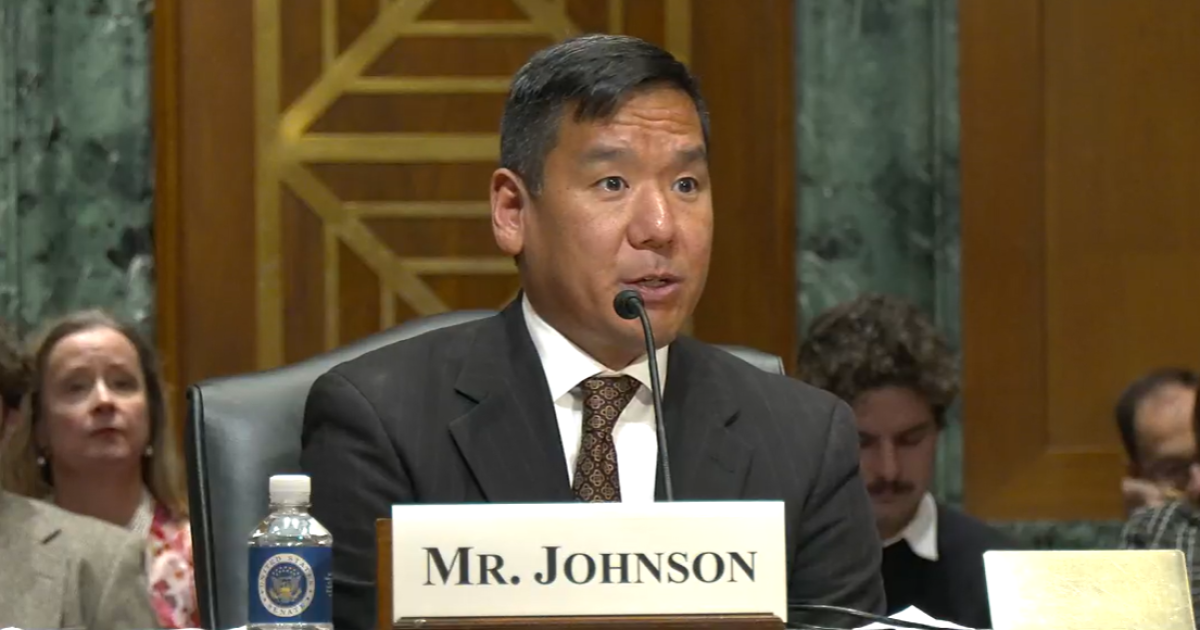The Senate Finance Committee voted along party lines to approve the nomination of David Samuel Johnson as the next Treasury Inspector General for Tax Administration, but he may need to wait until the next congressional term to be confirmed by the Senate.
Johnson is succeeding the late J. Russell George, who died in January after leading TIGTA since December 2004.
Johnson currently serves as assistant inspector general for investigations at the Department of Veterans Affairs and previously served as a federal prosecutor, including in the Fraud Section of the Criminal Division of the Department of Justice.
Senate Finance Committee chairman Ron Wyden, D-Oregon, voted to approve Johnson, along with other Democrats in a vote of 14-13. Republicans were opposed, arguing he shouldn’t be approved until a new Senate, which will be controlled by Republicans, is seated early next year.
“Independent oversight of the IRS is in the best interest of all taxpayers,” said Wyden. “It’s a challenging job. The Treasury Department has a separate Inspector General — but tax issues and the IRS require their own special focus. TIGTA, as it’s known to the tax policy crowd, is all about good government and protecting taxpayer dollars at the IRS. It helps improve tax administration and it fights waste, fraud and abuse. Those are priorities for members on both sides. This committee depends on TIGTA to provide the public with unbiased information and non-partisan oversight to help us do our jobs. Mr. Johnson is a highly qualified nominee and had an excellent hearing a few weeks ago. I strongly support his nomination, and I urge all my colleagues to do the same.”
The ranking Republican on the committee, Sen. Mike Crapo, R-Idaho, said he was voting against approving Johnson despite his qualifications.
“Mr. Johnson has strong qualifications and oversight experience, and I appreciate his service at the Department of Veterans Affairs and his willingness to serve today,” said Crapo. “I was encouraged to hear Mr. Johnson’s commitment to: distinguishing allegations of waste, fraud and abuse from disagreements in policy; ensuring that TIGTA holds accountable any individual who unlawfully discloses taxpayer information; and providing the Senate Finance Committee with timely and thorough updates of investigations as permitted by law. I was also encouraged to hear that Mr. Johnson and I share common ground on the need for the IRS to keep taxpayer information confidential, and for personal information to not be used against taxpayers to advance political agendas. However, given that the new Congress will be sworn in only less than a month from today, and the new Administration will take office just shortly thereafter, it is my opinion that these newly-elected officials deserve the opportunity to evaluate this appointment. Therefore, I cannot support Mr. Johnson’s nomination today. That said, I look forward to working with Mr. Johnson if he is confirmed in addressing the concerns that my colleagues and I have raised throughout this process, and ensuring that TIGTA continues to provide essential oversight of the IRS and our nation’s tax system.”
Johnson indicated during his confirmation hearing in November that he would focus on inspecting the IRS.
“Inspectors General conduct independent fact-finding and make objective recommendations so that Congress and the agency head are fully and currently informed of any deficiencies in agency programs and can take appropriate action based on accurate and unbiased information,” he said. “In my time at the VA OIG, I have focused investigative oversight resources on the most impactful issues facing VA and the veteran community. If confirmed, I will do the same for the IRS and provide candid, reliable, and pertinent information to Congress, the Treasury Secretary, and the IRS Commissioner to help improve the IRS’s operations for the benefit of all Americans.”
If he is confirmed, Johnson could be working with new leadership at the IRS. On Wednesday, President-elect Trump said he would name former Rep. Billy Long, R-Missouri, as the next IRS commissioner, even though the term of the current IRS commissioner, Danny Werfel, doesn’t end until November 2027.
Separately on Thursday, TIGTA released a report on how the tax offset program is continuing to allow millions of dollars to be erroneously refunded to taxpayers. It found that between 2020 and 2022, $40.1 billion in overpayments were offset to pay outstanding tax debts. However, over 4,500 taxpayers received more than $78 million in refunds or credits that should have been applied to their outstanding tax debts. Procedural and programming errors are continuing to prevent some overpayments from being applied to tax debts. TIGTA’s recommendations to improve the program included better training, updated internal guidance, programming changes and alerts to prevent erroneous refunds.


 Economics1 week ago
Economics1 week ago
 Economics1 week ago
Economics1 week ago
 Personal Finance6 days ago
Personal Finance6 days ago
 Economics5 days ago
Economics5 days ago
 Economics1 week ago
Economics1 week ago
 Personal Finance1 week ago
Personal Finance1 week ago
 Economics4 days ago
Economics4 days ago
 Personal Finance1 week ago
Personal Finance1 week ago











